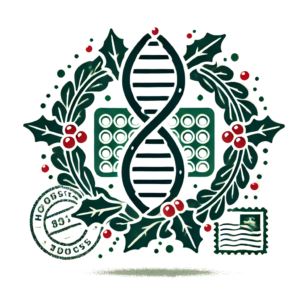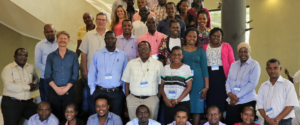What do you get when you cross ‘genetic communism’, a Polish geneticist and a great idea? You get Andrzej Kilian, and his invention of Diversity Arrays Technology. Add in a diverse and highly talented team of biologists, chemists and computer scientists and you have the company Diversity Arrays Technology Pty Ltd – or DArT – which is celebrating its 20th anniversary on 30th July 2021.
For 20 years, DArT has developed and worked with this invention of a new type of genotyping specifically relevant and valuable in the development of agriculture.
This is important work, and Andrzej is quick to point out that when he calls himself a ‘genetic communist’, he is not referring to any kind of endorsement of the highly flawed political system under which he grew up in Poland many years ago. He is referring to his belief in one of the key concepts in the more Utopian interpretation of communism – the absolute right of every child to be well nourished and educated.
Through DArT, Andrzej saw that he could help to make this a reality. The concept for the DArT technology was born of a recognition, in the late 1990s, that the genotyping technologies developed to explore the human genome were not universally applicable to agriculture.
It was clear, however, that this technology had a powerful role to play in assisting plant breeding and germplasm management, while costs, technical constraints and excessive centralisation of control worked against this.
The concept of DArT was further enabled by the availability – new at the time – of high-throughput platforms like the Genetic Microsystems microarray system. High-throughput genotyping was now available for the benefit of all genomes – and in 2001, DArT Pty Ltd was born – with financial assistance from both public and private sources. Andrzej’s invention had passed its proof of concept.
Strong early interest came from Australia’s grains industry – who invested in DArT so that the technology could be used with barley and wheat. Other crops followed, including, in 2005, arguably one of the most difficult subjects for genome profiling – sugarcane – and moving on to oats, hops, brassica, triticale, eucalyptus, and many other species.
DArT’s global reputation and involvement was also increasing at this time. It had always been a dream of Andrzej’s to take his DArT technology to the poorest parts of the world. Major steps in realising this dream were taken in 2007 with the first transfers of the DArT technology package to network partners in third world countries.
This initiative was supported from Canberra. DArT trained their scientists, and continues to work with them, supporting their genetic research and breeding activities, and providing a genetic sequencing service. In 2009, Andrzej’s work with DArT was recognised when he was named a finalist in the Ethnic Business Awards, a national competition recognising contributions from migrants to the Australian economy and society.
By about this time, the importance of IT in the work of DArT was becoming increasingly apparent, especially with the advent of genetic analysis software based on Statistical Machine Learning. The DArT platform was becoming more and more powerful, a massive amount of data was being gathered, and the software tools to obtain, store and intelligently process it were becoming more sophisticated.
A deliberate and considered decision was made to transition the company, to be not just a supplier of genomic services, but to be a developer and disseminator of related IT products. The first step was to start work on a new data integration platform that became the Knowledge Discovery and Delivery System KDDart.
In 2011, two significant things happened. Firstly DArT Pty Ltd launched DArTseq technology, greatly increasing the number of organisms the company could sequence – and the dream to take DArT to the world was given a further boost with the execution of a Memorandum of Agreement with the International Maize and Wheat Improvement Centre to transfer the DArTseq platform to Mexico.
By 2013, DArTseq was adding data on at least one new organism every week into the DArT knowledge base. DArTseq was also taken up for work in an exciting new direction – “landscape genomics” – as the platform proved valuable in the area of ecological and populational genetics research. This work has continued, and DArT now works with ecologists and large multi-national corporations on assisting them to minimise the negative ecological impacts of the work they do, while at the same time protecting biodiversity.
DArT also began work in Africa, providing for the first time, reliable, DNA-based data on the crop varieties being grown by farmers, starting with a project on wheat and maize in Ethiopia. In 2016 a DArT off-shoot was established in Nairobi, Kenya, with staff again trained in Canberra.

Software products continued to be developed and enhanced – covering tasks from the capture of data in the field, to assessment of its quality against the growing resources of the company’s database. DArT passed the milestone of its first million assays in 2017.
Now, at the time of the company’s 20th birthday on 30th July, 2021, DArT’s knowledge base contains over 2.5 million genome profiles, with genetic data for thousands of species. For DArT, and the contribution it has the power to make, the next 20 years of its story will be very exciting.
For the ‘genetic communist’ who started it all, the results are very satisfying, but there is still much to be done as DArT enters its next phase towards improving agricultural practices and outputs, maintaining vital biodiversity, and taking the benefits of its technology to those people in the world who need it the most.



